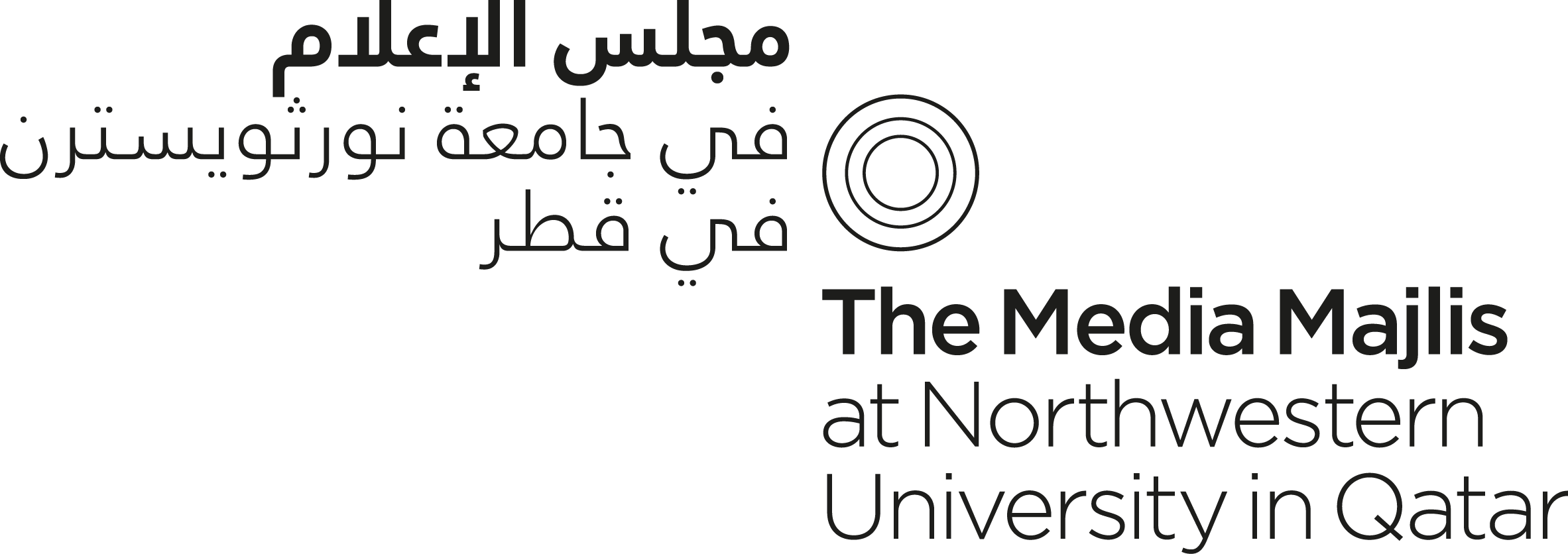
A video recording of this program is now available on the Explore Content section of this website.
As exhibitions move towards engaging with audiences in more active and performative ways, museums are increasing their use of media and technology. Storytelling in exhibitions has become increasingly important, and melded with technology can create immersive, active spaces for visitors, a far cry from the passive viewing of objects often thought of as a typical museum experience.
The intersections of digital media, moving image, storytelling, and exhibitions as forms of communication, means changes in what museums do, how they do it, and what visitors receive. What does this mean for communication when VR is used for its immersive impact and ability to create empathy? Can visual storytelling through moving images in an exhibition replace the cinema experience? With the constantly changing and developing digital world, can museums even keep up? And ultimately, is this how audiences want to engage with exhibitions and each other?
The Media Majlis at Northwestern University in Qatar and UCL Qatar collaborate to host an evening of discussions that broach the topic of storytelling in the 21st century museum.
Join digital technology leader Nancy Proctor and our panel of speakers—who wear many hats, including as curators, researchers, academics and directors—for a discussion which will leave no stone unturned. This discussion will include questions from the audience, and has simultaneous translation.
-
Venue accessibility
-
Simultaneous translation
Simultaneous translation (Arabic/English) is provided for all programs.
-
Wheelchair accessibility
The Projection Theatre is fully wheelchair accessible and features multiple wheelchair spaces with unobstructed views of the stage and screen.
-
Sign Language interpretation
Sign Language interpretation (ASL and ArSL) may be requested for talks, discussions, lectures and tours. Please contact the museum well in advance of the program to discuss this service. You are welcome to bring an interpreter with you—please let us know ahead of time and we will ensure that appropriate seating is reserved. A program ticket does not need to be purchased for an interpreter providing prior notification of their attendance at a specific program is provided to the museum.
-
Wifi
Free wifi access is available in the building. On your mobile device, with wifi switched on, select Guest-NUQ-Majlis from the available services and accept the terms of service to connect.
-
-
Program credits
Nancy Proctor
Nancy Proctor (moderator) is the Director of The Peale Center for Baltimore History and Architecture, and the MuseWeb Foundation, the new non-profit initiative of Museums and the Web. Previously she was Deputy Director of Digital Experience and Communications at the Baltimore Museum of Art, head of Mobile Strategy and Initiatives at the Smithsonian Institution, and head of New Media Initiatives at the Smithsonian’s American Art Museum in Washington, DC. Proctor lectures and publishes widely, services on editorial boards, and collaborates on projects including the Omnimuseum.
Anne Morra
Anne Morra is Associate Curator in the Department of Film at The Museum of Modern Art in New York (MoMA). She has organized numerous film exhibitions including Made at MoMA, 50 Years of James Bond and Visual Poet: Harris Savides. She also publishes on MoMA’s Inside/Out blog, with The Journal of Film Preservation, and MoMA’s Modern Women publication. Her role as a curator entails organizing the Modern Matinees film series drawn mainly from the collection of nearly 30,000 films, interfacing with moving image artists to identify and acquire new works, collaborating with other curatorial departments at the museum on exhibitions, writing projects and educational initiatives involving film.
Paul Marty
Paul Marty is Associate Dean for Innovation at the College of Communication and Information at Florida State University, as well as a Professor in the School of Information, Florida’s iSchool. His research and teaching interests include museum informatics, technology and culture, innovation and design, and information and society. He has served on several national and international museum-related editorial boards and committees including Museum Management and Curatorship, Museums and the Web, and the Museum Computer Network.
Sarah Cook
Sarah Cook is a curator, writer and researcher based in Scotland. She is the editor of the book INFORMATION, and co-author of Rethinking Curating: Art After New Media. She is the co-founder and co-editor of CRUMB, the longstanding online resource for curators of new media art. As a Dundee Fellow at Duncan of Jordanstone College of Art & Design, Cook curates the program for the LifeSpace Science Art Research Gallery and works as an associate curator with New Media Scotland and with Scotland’s only digital arts festival, NeoN Digital Arts Festival. Recently, she became a professor of Museum Studies in the School of Humanities at the University of Glasgow.
